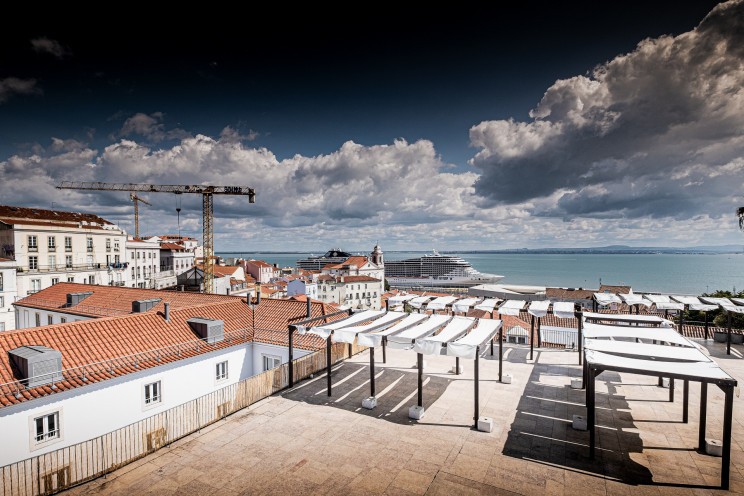
Office, retail, manufacturing and logistics, the hotel industry, residential and investment. What impact is the coronavirus pandemic having on the various sectors of the real estate sector in Portugal? According to the real state consultancy firm, Cushman & Wakefield (C&W), in the residential sector, "demand from international clients is expected to pick up first and international investors are still very interested in Portugal".
In the first edition of COVID-19 Portugal Market Update, a publication that analyses the implications of the pandemic in the various sectors of the national real estate market, C&W "summarises the most relevant government measures for the various areas of activity, giving an insight into current and future implications", says the consultancy firm, in a statement.
Let's have a look at the main conclusions from the publication, looking at each real estate sector:
Offices
Given the uncertainty about the real impact of the COVID-19 outbreak, most owners and tenants are adopting a cautious wait-and-see strategy. There are still no signs of an immediate impact on rental values for offices, which is in part due to the current lack of quality supply. However, tenants are expected to request incentives, including periods of reduced rent.
Retail
The pandemic is affecting all sectors of retail activity, except for consumer goods. Minimising losses and keeping the sector sustainable over the long term requires a constructive attitude from owners and tenants, as well as from banking and official entities. Recovery will depend on how long a return to normality takes and whether consumption patterns return to previous levels.
Some shopping centre owners have waived rent as long as shops have to remain closed. For other centres, and although the rental moratorium legislation offers tenants a temporary oxygen supply, case-by-case negotiations should be the rule in the aftermath of the pandemic.
Manufacturing and logistics
The exponential increase in online sales will bring new players to the market in the area of logistics that will come out of this crisis clearly benefiting. Portugal remains attractive and a continued interest in investing in the sector is expected, with developers resuming their projects, making up for the lack of quality space in the main logistics hubs of the country.
The hotel industry
The hotel sector is being hit hard by the crisis, but there is a widespread perception that the fundamental bases of tourism have not changed, and that activity will gradually resume once the current restrictions are lifted.
Domestic tourism and the Spanish market will play an important role in hotel demand. Operators have already accepted that the 2020 performance will be below expectations and are already focusing on the 2021 business plan. Investors in this sector are in some cases trying to adjust purchase prices.
Residential
In collaboration with the real estate company Porta da Frente, the publication concludes that the crisis will impact the demand for housing in the coming months. However, in the event of a rapid market recovery, a significant price adjustment is not expected, as there is still an imbalance between supply and demand in the country.
Demand from international customers is expected to resume first, as Portugal will continue to offer the same differentiating factors recognised by foreigners. The rapid and effective response of government and society to the pandemic reinforces this good reputation.
Investment
International investors continue to be very interested in Portugal. The good performance of the country's economy and the response to the COVID-19 outbreak has received international praise. There is some uncertainty regarding the medium/long term effects of the pandemic, but investors show intentions to close pending deals as soon as the market begins to return to normal.
Many investors are showing their willingness to close opportunistic deals at this time, while more conservative players are still waiting to see how the situation unfolds but are ready to invest in the near future.